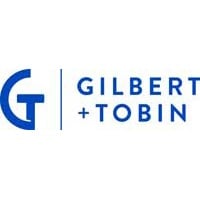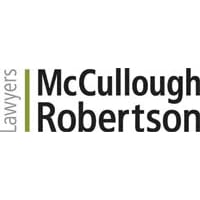

Head of legal, corporate | Origin Energy





Daniel Krutik
Head of legal, corporate | Origin Energy
Head of Legal, Sydney | Origin Energy
Head of legal, Sydney | Origin Energy
Award-winning in-house lawyer Daniel Krutik routinely handles billion-dollar cross-border transactions for Australia’s leading energy company, Origin. He drew particular recognition for his handling of its $3.26bn acquisition of two electricity...
Head of legal – Sydney | Origin Energy
Australia’s leading integrated energy company and its largest energy retailer, Origin Energy delivers energy solutions to over four million electricity, natural gas and LPG customers. As head of legal, Sydney,...
The successful sale of Origin’s upstream business (Lattice Energy) to Beach Energy in the 2018 financial year for A$1.59m was a transformational transaction for Origin, as it significantly simplified our business and led to a material reduction in Origin’s debt level. It was undertaken as a dual track sale and IPO process and required collaboration across multiple business units, external advisers and the Board.
I’ve been involved in many other smaller but also important transactions over the past two years including the sale of our Acumen metering business, our Ironbark CSG permit and our LPG business in Vietnam. We also made some acquisitions, including the purchase of the OC Energy centralised energy services business, which is a growth area that Origin is focusing on. The major litigation I have been involved in over the past two years (and longer) is APLNG’s defence of the Tri-Star litigation proceedings.
I think that the most important thing a lawyer has to do to build a strong relationship with the business is to earn the trust and respect of the business people they are working with. Once the trust and respect is established, the broader relationship can be developed. You build this through your actions and behaviours in everything you do. Be responsive, be responsible, behave with integrity, be available when your help is needed and always be ready to exercise your best judgement and make recommendations on the hard decisions.
We use ActionStep and Netdocs as our matter management and billing systems. We have used these systems for just over 12 months. We are also building an Origin spec “PowerBI” system on top of ActionStep to create more reporting for better tracking of matters and costs. I envisage that in the future we will implement additional legal tech products and are looking into invoice review software, automated contract templates and other contract drafting tools.
Being in the energy industry, Origin has had to cope with significant regulatory change, and our team has had to provide significant legal support in the face of this change. This includes the introduction of the Default Market Offer and the Victorian Default Offer for electricity prices (effectively regulating retail electricity prices, as well as introducing many other related reforms), the potential introduction of the “Big Stick” legislation and the recently announced review of Australia’s domestic gas policy. This is all against the background of continuing uncertainty on climate change policy which has impacted the energy industry’s ability to make long term investment decisions. This of course creates significant challenges for the legal team when advising the business.
We are lucky to work with excellent external counsel from a broad range of firms. They understand what we are looking for from them and how they can help us achieve our objectives. In general, the most effective way to get the best performance from external counsel is to bring them into the tent early and to include them in strategic conversations all the way through. This way they are not playing catch up or trying to guess at what we’re trying to achieve. Where appropriate, Board visibility can be helpful for strategically important matters. The more time we are willing to invest in teaching our external counsel about our business, the greater the benefit we get back.
Over recent years a key focus area for general counsel has been how to do more with less. How to get more out of internal and external lawyers, how to introduce more efficient processes and how to demonstrate the value of the legal team to the CEO and the board, usually through financially focused measures.
This is likely to continue in coming years and the plethora of innovative legal technology products and “new law” service providers is evidence of that. A more recently emerging area of challenge for general counsel which is likely to take up significant time and focus comes as a consequence of the Financial Services Royal Commission. Whilst focused on the financial services sector, the consequences of the findings of the Royal Commission reach across all organisations and will exercise the minds of all company directors and senior executives – and therefore all general counsel.
The Royal Commission reported on the importance of organisations investing in the development of a strong ethical culture, which should in turn go a long way to ensuring that an organisation acts in a way that meets the newly coined – and now often referenced – standard of “community expectations” of corporate behaviour. It is up to the board and senior executives including general counsel “to set the tone from the top” by articulating and living the values and behaviours that meet and exceed that standard, so that the culture permeates throughout the organisation. Governance and remuneration structures must reinforce these values and behaviours.
But are lawyers well placed to advise boards on what corporate behaviour an organisation should or should not engage in to meet community expectations? After all, it’s not a legal standard and there is unlikely to be any case law about what it means from a legal perspective. I think the answer is yes, and in fact I believe general counsel are uniquely positioned to advise boards and senior executives in this space.
Concepts of fairness, unconscionable conduct, judgements about what a reasonable person would expect and ethical obligations (which underpin all aspects of our legal practice) are all areas that lawyers are familiar with, and they shed light on what “community expectations” could entail. Lawyers will need to take their understanding of these concepts and combine them with the views of their company’s customers, employees, shareholders and members of the communities in which they operate to formulate their advice and recommendations about what their organisation and its directors should be doing to meet the community expectation standard whilst also acting in the best interests of the company as a whole. Whilst this is an emerging challenge, I think it’s one that general counsel are well placed to handle.